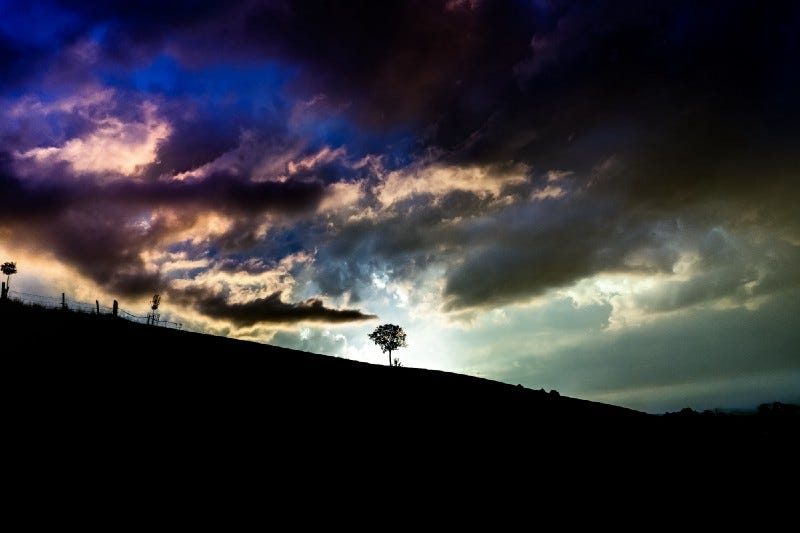Why you can be hopeful, even in the dark

Why you can be hopeful, even in the dark.

Stories of brokenness are all around us. Last week, I wrote about those times you feel buried in the dark and a friend commented, listing some of the things she’s been buried by: grief, suffering, fear. Me too, I thought, and I could add disappointment, anxiety and loneliness to my list as well. Whether it’s huge, life-altering events, or the accumulated layers of bumps and bruises from living in an imperfect world, every one of us has painful tales to tell.
And yet, my friend also said that through it all, she’s been beyond thankful for the hope she has in Jesus. And she’s not the only one. I’ve heard similar comments over and over again, from people who’ve suffered much bigger traumas than I have: people who have lost limbs and lost babies and live with constant grief and pain; people with a terminal diagnosis who are facing their final days; people who’ve lost their job and their home; people living under the dark shadow of depression.
Walter Brueggeman writes that “Hope expressed without knowledge of, and participation in grief, is likely to be false hope that does not reach despair… it is precisely those who know death most painfully, who can speak hope most vigorously.” And that’s what you see in these people’s stories. The kind of hope they talk about isn’t just wishful thinking or a bunch of meaningless platitudes. To make a difference in the face of such suffering, hope has to be truthful, tangible and real.
One reason I love being part of a church community, is that this kind of hope so often slips in quietly alongside other people’s kindness. The church is messy and imperfect, as families are. But there you also find a whole group of people who care profoundly for each other. These are people who will care about your diagnosis, or your broken heart, or your child who is struggling. These people will feed you, or babysit, or help you mend relationships when it’s needed. These people will listen to you and pray with you, not just once, but over and over again. These people will believe in you, when you can’t believe in yourself. It’s both humbling and deeply healing to be on the receiving end of such gifts. And somehow, in the midst of these ordinary people showing up to love you in ordinary ways, hope begins to seep in through the cracks. It reaches down into your despair and reminds you that, even in the dark, you are not alone, and this is not how your story ends, because this is not how our story ends.
The church is a community deeply rooted in the hope of the resurrection. Even death itself is not the end of the story. According to the Bible, God has placed eternity in our hearts, and I think that’s because He knows we need it right at the centre of who we are. It is our anchor into a future beyond the heartache and brokenness that we see and feel in the here and now. It is a real hope that bears witness to our pain and reminds us that, one day, God himself will wipe every tear from our eyes, and God himself will make all things new.



